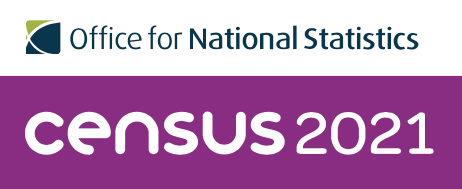| Issue November-26 | ||
 |  |
|
| ·Home ·Politics ·News ·Sport ·Life ·Culture ·World ·Essays ·About | ·Archive | |
| ||||||||||||||
 |
Every ten years we are subjected to a national census. This began in 1861 and has formed the basis for important government decisions and guidance ever since. One should assume that the statistics published after this task, which is organised by the Office for National Statistics, are unbiased, fair and accurate. By the way, the origin of the phrase "Lies, damned lies, and statistics" is unclear, but Mark Twain attributed it to Benjamin Disraeli. However when the results from the Office for National Statistics (ONS) at the beginning of 2023 stated that there were 262,000 transgender people in England and Wales, many were sceptical. As it turns out the census probably vastly overstated the transgender population.How did this go so wrong? The ONS admitted that there should have been what Whitehall sources called "additional probing" before the controversial data was released. It was followed by an official inquiry by the Office for Statistics Regulation (OSR) into the census which supposedly found that 260,000 people identified as transgender should have been better analysed and performed and that several "lessons learned" should have been learned from the way the data was handled by the ONS. They include a conclusion the ONS should do more to communicate - uncertainty - about the data and should have sought external "quality assurance". This case has increased tensions between ministers and the ONS already fired by the ONS admitting in September 2023 that they had completely miscalculated and underestimated the UK economy by nearly 2 per cent as of the end of 2021 "meaning Britain recovered to its pre-pandemic level almost two years ago". Presumably Brexiteers will claim the ONS is run by a Remainer civil service. The Whitehall source stated it was clear the 2021 figures on gender, released in January 23, "hugely overestimated" the number of transgender people. This is a view they said was shared by many ministers. According to an article in the Telegraph there had been a legal challenge over the wording of the 2021 census which the ONS lost. The Census posed the question: "is the gender you identify with the same as your sex registered at birth?" A question one might assume is clear and unlikely to cause confusion. The inquiry into the findings was influenced after academics warned the wording of the census question could prove to cause problems in particular for respondents whose first language is not English, or those who are less familiar with the language of gender identity. In fact language experts found that those who speak English poorly were five times more likely to be transgender. Michael Biggs, a professor of sociology at the University of Oxford, claimed that misinterpretation of the wording might explain why the London boroughs of Newham and Brent, which has a significant percentage of residents who speak English only as a second language, recorded the highest proportion of transgender people in the UK. Common sense would tell us that this could hardly be the case. Given this discrepancy, we need to ask whether the ONS should have published the data at all. Ed Humpherson, the head of the OSR, wrote to the ONS setting out its initial observations. He stated that the ONS team that carried out the quality assurance of the data agreed that, with more time to look at all combinations of variables, for example looking at gender identity and ethnicity, it may have identified areas for additional probing and analysis. He also wrote. "When releasing big data sets for the first time, it is inevitable users will want to interrogate and analyse the data for their own purposes." ONS could have done more to see this as an opportunity to crowdsource quality assurance, or at a minimum, be clearer that it was open to feedback as part of releasing the data. Even if the data was to be published it is interesting that Humpherson had also said that "the communication of uncertainty should be strengthened". In other words, warn the readers of possible inaccuracies. However the ONS will not budge from its findings and the OSR will not comment at present (September 23) while their review is still ongoing. The ONS has stated: The census estimates on gender identity remain the best available. They are broadly consistent with NHS data collected in the same year and other countries' comparable data. The new, voluntary question went through rigorous development and testing involving trans and non-trans people and, through the census rehearsal, people who did not have English as their main language, before being finalised through legislation. Just because the data is the best available doesn't mean it is good data. Quite a weak argument. Supposedly that is their excuse for the economic estimates as well. So probably we should rely on independent surveys, if you can find one which is unbiased, rather than statements from the ONS. God only knows how many other statistics are based on the false interpretation of the wording of the questions. London 01. October 2023 -pw- |
| ||||||||||||||||